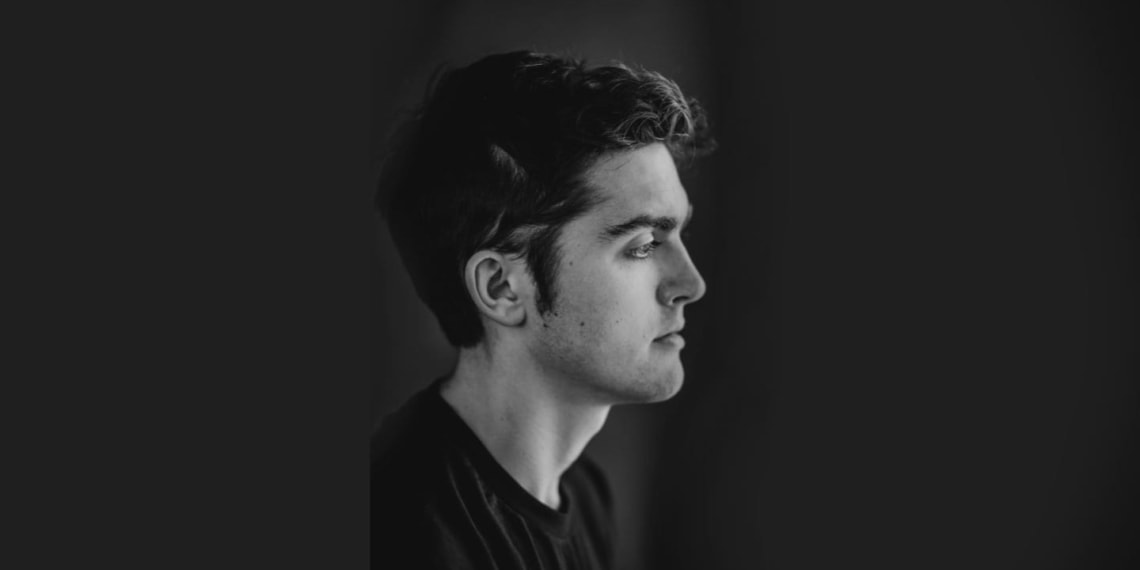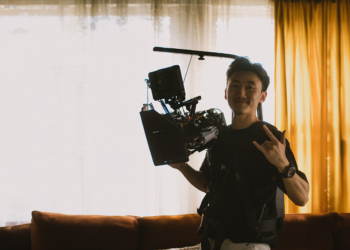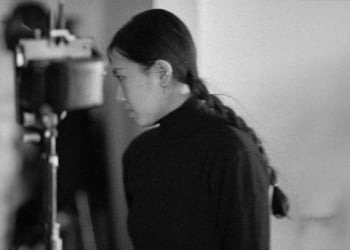Back Of The Night is dark, gritty and emotionally taxing. It’s also thought-provoking, philosophical and questioning. While it may not be everyone’s cup of tea, Korotkevych certainly has something to offer anyone who is willing to learn, to be moved, to be challenged. His film questions the status quo and flips the narrative in a manner that begs multiple questions. A chance to pick the brain of an incredible storyteller, Korotkevych shares with us what prompted him to add subtexts to his stories, what he hopes to achieve from such dark tales and if the pursuit of creative expression is ever fully cathartic.
- Christmas is celebratory. Yet, your film explores the dark side of it. What prompted you to shake the norm in Back Of The Night, setting it against such a universal phenomenon?
As it happens, subtexts form in the subconscious. And, it seeps through, until it screams to come out through the writing. In Back Of The Night’s case, such subtext being the traditions (as celebrations are) that don’t entirely fit into the bio-rhythm of a person intrigued me. That instinctual disconnect. Perhaps that is the root of such greedy outlook towards what is considered to be a classic event, such as Christmas?
For me, a celebration of any kind is nothing else but a perfect made-up excuse for us to run away from the reality. A blank-bleep-pause. A long blink amidst the chaos called life. “Festen” (“The Celebration”) by Thomas Vinterberg jumps to mind with a similar theme: a family-birthday-gathering that turns into a falling domino of painful truth coming into the open.
- That’s fascinating… But, Back Of The Night goes beyond that. It is more inclined to exploring mental/emotional duress than physical. Why this need and interest on the inner self when you can effortlessly concentrate on the periphery?
Thank you for your keen observation of the characters’ mental/emotional state and the subsequent exploration of it. Although, I have to say, as far as the physical versus emotional state is concerned, I personally don’t see a difference, because it’s really a case of cause & effect. The two are merely an inch away from one another.
But, what I certainly am is a total sucker for silence & those tiny-particle-shifts happening under the surface. I feel, the real challenge comes with the stripping away of those layers of defence & letting the moment speak for itself, instead of forcing it. But as we all know, by nature, we are incredibly resilient & simply terrified of the unknown; of the letting go…
For me, just noticing the break-through changes on a daily basis is fascinating. It seems like the deconstructing of a castle one brick at a time. Unfortunately, as social creatures, we have all learned to become self-protective, and that too at such a deep, habitual level, that we are totally oblivious to it now. Life has gradually become a state of emoting, which of course leads us directly to the inner turmoil that one day will, for the lack of a better word, explode.
Back Of The Night’s aim was precisely that: for exploration, to allow the truth to float up. It’s no surprise that we gravitate so much towards this complex medium of filmmaking, since it gives us a direct opportunity to reflect back on ourselves, be it the “good” or “bad”.
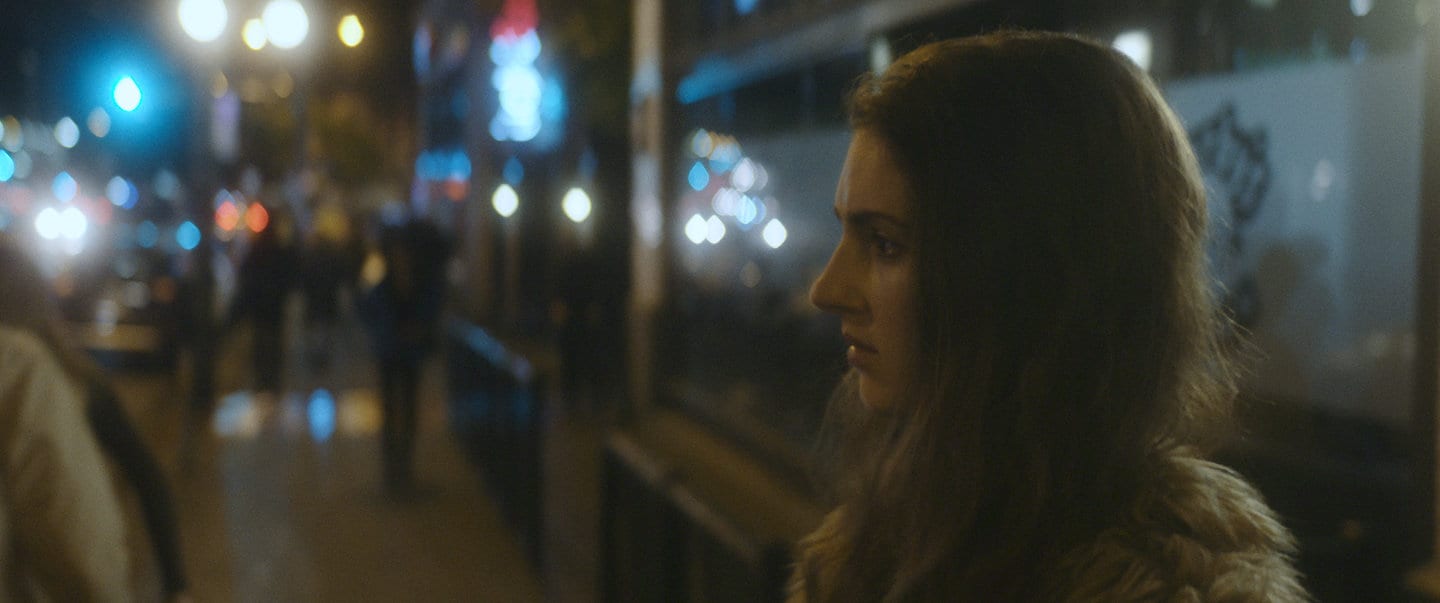
- There is gender, age, class and mental state explored in your film. Multiple dimensions explored with languid pacing at the start. Was this your intent all along or were the developments organic while filming?
I am undeniably the biggest fan of slow-burn. That alone should explain the pacing! Whenever a filmmaker allows that blank moment to go on for an unconventional amount of time – I find it to be the epiphany of boldness in filmmaking. Then the film itself becomes a breathing picture. Quite literally, hypnotizing.
(I see… Could you think of any film that had a similar impact on you?)
Oh, yes! A recent film that comes to mind in terms of embracing that style would be David Lowery’s A Ghost Story, love at the first scene for me, that one!
Coming back to the question… So, was adding those elements on age, gender et al intentional?
I am glad you mentioned the ‘demographic’ equity of the film, actually. I have to admit, that looking back at my earlier & present work, I notice that I find myself constantly leaning towards the minorities. Be it in the beliefs they share, or their ethnicity, heritage, or even gender etc. I find it striking that we live in such a polarizing society when logically speaking, we are all on an identical human path, sharing all its vagaries and emotions equally, if not in equal measure.
Yet now, each niche that we’ve been forced into involves the fight – a fight to stand for in their shoulder-to-shoulder solidarity. But, on a positive note, this is where cinema steps in. Its beauty lies in the fact that it allows us to capture and explore the general-overall scope of such issues as they continue to loom above our heads.
- Phew! That’s deep. That brings me to my next question. Your characters are as complex as they’re simple. How easily do these characters come to you? Do you draw inspiration from real-life situations/people or does enough research go behind it for you to conjure them up? What is your process in writing these characters?
Quite frankly, for me personally – writing is the heaviest rock to be lifted. Fortunately or unfortunately, for me, ideas seem to come and go, out of nowhere! They are almost like a subconscious whisper that passes through the blubber of daily life. When it flows it is the most gratifying feeling of all, else it is a chopped experience of connecting loose dots. You know, it is true when they say, that you need to let it come to you, instead of selfishly pushing your desire to create?
Even the thought of pursuing it doesn’t sound genuine to me at all! In fact, none of those screenwriting books ever helped me for the most part. And while, although, they attempt to provide you with a much-needed guide & foundation to lean on, those structures feel utterly confusing in reality and attempt executing them, you’d know what I mean.
(Please continue.)
It is like playing a ball & reading a book about how to play a ball at the same time. Good luck, if it works for you! And, coming to writing the characters… I love the flaws. I love contradicting one belief & outlook on life against another, which of course comes from observing from the opposite ends of the spectrum. It’s an interesting technique as they put us in a position to question what side we choose… As long as thought is provoked and the question asked is making the viewer ponder then it’s a success; for nothing else matters. The closure can certainly be satisfying but that’s only a sense of pseudo comfort, and we all know that everything is up for change and/or transformation.
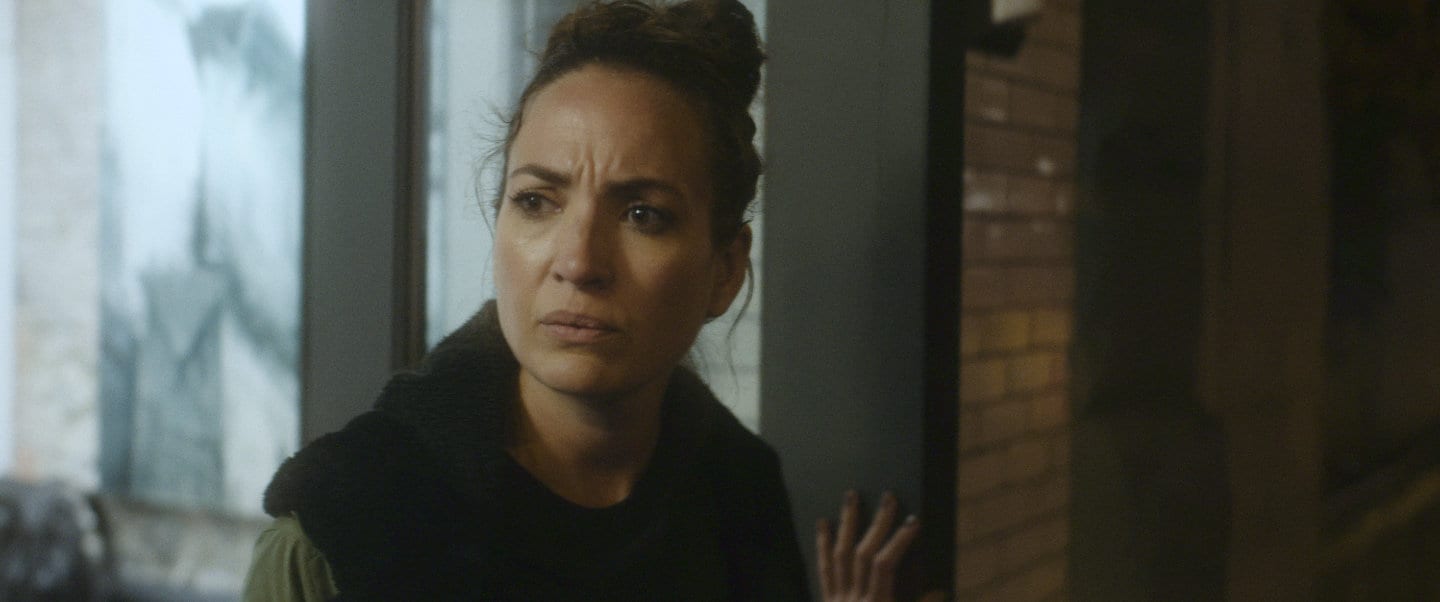
- You chose a cyclic narrative for your film. That brought a sense of entrapment to the film. What did you hope for the audience to take away from it?
A sense of reflection on real life, maybe? If you observe closely, the cyclical notion comes down to the following belief system; that we are habitual beings, all running by the clog of repetitive actions, yet what we do remain in charge of (unless the free will is of no existence after all, and it is all an illusion) is the actual chain-reaction, those dots that we use to connect in creating, unfolding the future. Endless consequences & lessons. On and on we go.
- That was profound, Valentyn. Tell me, how do you keep yourself open-minded and positive when the characters and stories you’re working on are so challenging?
Trusting the material, I guess; to put it into a broader perspective… As I mentioned earlier – a material can’t be pushed, otherwise, it will rebel back & you are in for a bigger loss of its identity, meaning, structure etc. Characters and their development fascinates me to no end, as of course, they are nothing but a direct re-incarnation of my own subconscious mind and its struggle to be expressed. So, it’s the opposite – I am grateful for those fictional beings since they are literally my rescue. So, I don’t find them challenging, on the contrary, I find them liberating.
- What do you personally find difficult to balance while working on any project? And have you by now found a method that works for you?
In all honesty, I haven’t found the method quite yet. In fact, the water only got murkier & more personal with more questions being raised; especially if you take into account the recent change in the global climate. But to be fair, storytelling breeds in those mysterious waters – at least for me, they help me immensely to get by. And, I think it’s meant to be that way. For instance, a painting is painted, music is composed, and, a film is recorded – all for the same reason. Expression. What comes along – comes along, and the more we try to intellectualize it – the more the final result will suffer. The best way I can put it is – there is a sense of euphoria which comes and goes. Those are the times when ideas & voices knock on your door. Usually, those knocks are very, very quiet. So, the quieter you can get and the farther you can get away from the chaos, the higher are your chances to hearing them.
A further assumption of mine would be that there is a way to reach that state too. But, if you ask me, whether I have found it yet – I certainly haven’t! But, have to add – meditation has certainly started to bring with it a calm sense of clarity to me, over the past few months. An opportunity to ride through that bliss has truly been a unique experience. But it takes time to learn surfing (smiles).
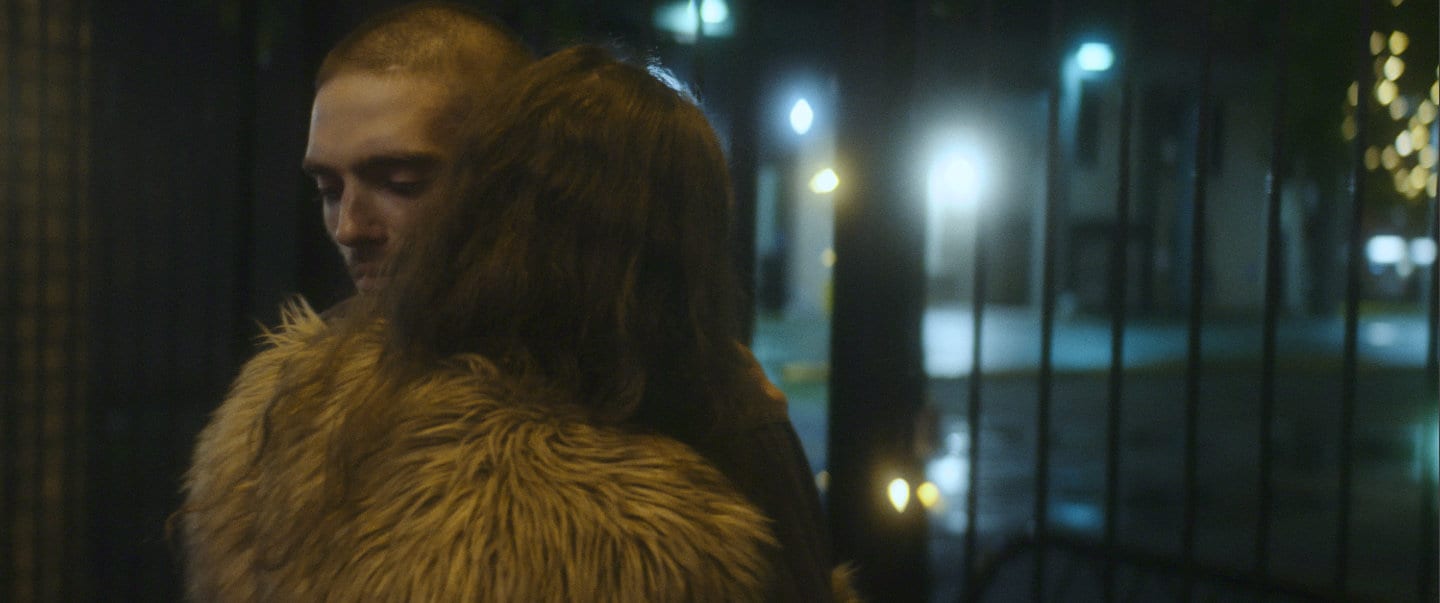
- Cinema is perceived to be a medium offering catharsis. But, your films challenge the norm. What is it that you’re trying to tell your audience through your unique filmography?
Catharsis indeed. (Thinks) It’s another dichotomy of chain reaction really. If I were to describe my primary cares & values – it’d be a list of things. For one – discrimination. A generally lost sense of balance that we experience as a species. It is true when people say that we are on the verge of a big shift. More so, we remain responsible for it to happen, since alternatively, the price is too high for us to pay. It is a turning point. Continue on or embrace the change: social, environmental, political etc. We simply don’t realize or perhaps simply are scared to admit to the fact – we are all in the same boat here. Everything else is just a made-up label we’ve invested so highly into believing. If everything is indeed an illusion – what is real than? Ground & Earth we stand on would be my answer. And no matter the size of the argument, our actions (or rather lack of) remain very questionable on that front.
So, I would say, it’s about reflecting, raising questions and better responsibilities for our actions that I hope my films emphasize.
- The recurring theme of your films run on mental state, damage to the individual or system and isolation. What draws you to them repeatedly?
Thank you for noting this and bringing it up. I believe films should speak for itself. Which is why I try to raise important conversations through them. Personally, mental-health problems are something I struggle with and hence relate to, which is why they feature so prominently in my films.
We live in a crazy world that is so fast-paced that we are in luck if we manage to catch up with it. Such pace can only accumulate and cause issues along its way. If only we would slow down and find our instinctual senses back, that it would help solve the bulk of those problems.
In Back Of The Night, that message represents itself through the mindset of Rebecca (Leah Egan). A sense of wonder, the first step towards the bigger awakening (contemplation as a good friend of mine likes to call it). Yet it is being challenged by pointless nihilism of Monic (Jenni Squair), which, in its ballpark, is exactly how it works out there. Inevitable friction, with no solid middle ground to rest on. Sparking more & more for the fire to rage along the way. That fire, figuratively, leads us to the ensuing consequences (aka mental problems). So, as in all art, my films too are a reflection of how I perceive life, the society and the people in it.
- A film that doesn’t offer closure can be unnerving. How do you find your closure post-release of the film, any film?
Luckily, I gradually learn to let go. It’s hard to say goodbye to each experience. But once you’ve shaped the sculpture, put your time, effort & heart into it – you know you did your best. Admit it, put it on the shelf and yes, be open to look at it once in a while. (smiles)
No-judgment is a key element, of course. Every project is an opportunity to grow & see the progress you are making; as a person and as a professional in the creative field. It is like writing in the journal. Your opinions and passions will change and that’s okay. Not clinging & holding on to it is so important. Life is fluid, so, go with the flow. It’s all there, open & available for us to explore… (Signs off)
Philosophical, deep and reflective; Valentyn’s films are a reflection of his thoughts and ideas, as distorted as utopian – as are most of ours. His future projects include writing, directing and acting, with the latest being Awake; a story on a suburban teacher’s rude awakening to reality. To know more of his works, click here.


